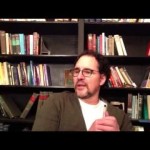We run our website the way we wished the whole internet worked: we provide high quality original content with no ads. We are funded solely by your direct support. Please consider supporting this project.
What is the significance of Jeremiah 32:35?
As in Jeremiah 19:5, the Lord expresses his dismay over Israel’s paganism by saying they did this “though I did not command them, nor did it enter my mind that they should do this abomination.”
If this abomination was eternally foreknown to God, it’s impossible to attribute any clear meaning to his confession that this abomination did not enter into his mind. Conversely, if the Lord’s confession of dismay is completely sincere in this verse, it seems we should deny that God foreknows all future free decisions.
Category: Q&A
Tags: Open Theism, Q&A
Topics: Open Theism
Verse: Jeremiah 32
Related Reading

What is the significance of Exodus 13:17?
The Lord didn’t lead Israel along the shortest route to Canaan because Israel would have had to fight the Philistines. The Lord wanted to avoid this, “Lest the people change their minds when they see war, and they return to Egypt.” [NIV: “If they face war they might change their minds and return to Egypt”].…

Lord Willing? Part 2
In Part 2 of Greg’s interview of Jessica Kelley about her book Lord Willing?, they discuss the theology that helped Jessica through her son Henry’s illness and death. You can find Part 1 of the interview here, and part 3 here.

The Rorschach Test
The choices we make will either increase or decrease our ability to recognize light when we see it. As we choose goodness, we increase our capacity for goodness. What do you see when you read the Bible or look at God or interact with others? Everything is a Rorschach test to some extent, revealing the light…

Lord Willing? Part 1
Greg sat down with Jessica Kelley recently to talk with her about her book Lord Willing?. We’re posting their conversation in three parts. Today, in part 1, Jessica shares the story of when her son Henry was diagnosed with an aggressive brain tumor at age 4. You can find part 2 of the interview here, and part…

Process Theology & Open Theism: What’s the Difference?
Question: When ReKnew talks about Open Theism is it a mistake for people to equate it with Process theology, and if so what are the defining differences? I guess I am starting to lean toward Dr. Boyd’s thoughts for all things theologically egg-heady, so I thought I would ask the question. Your ministry has been freeing…

What’s the significance of Acts 17:26-27?
This passage is frequently cited by determinists, for Paul here states that God “marked out” the “appointed times in history and the boundaries” of nations (Ac. 17:26). This doesn’t entail omni-control on God’s part, however. It only entails that God is involved in setting temporal and geographical parameters around nations. Moreover, nothing suggests that God…
